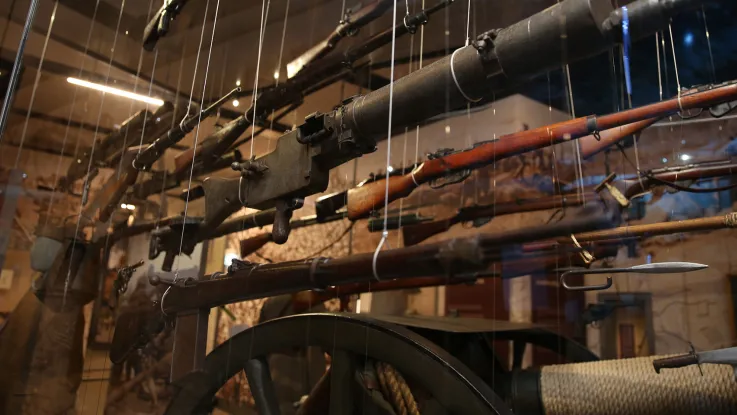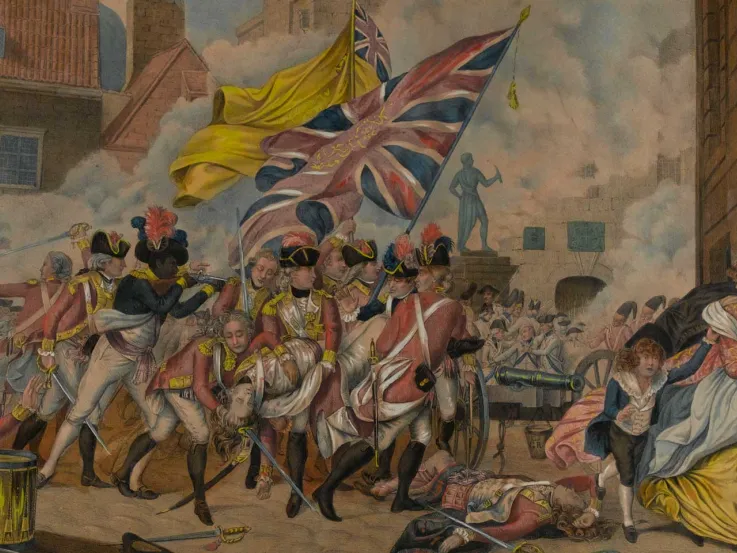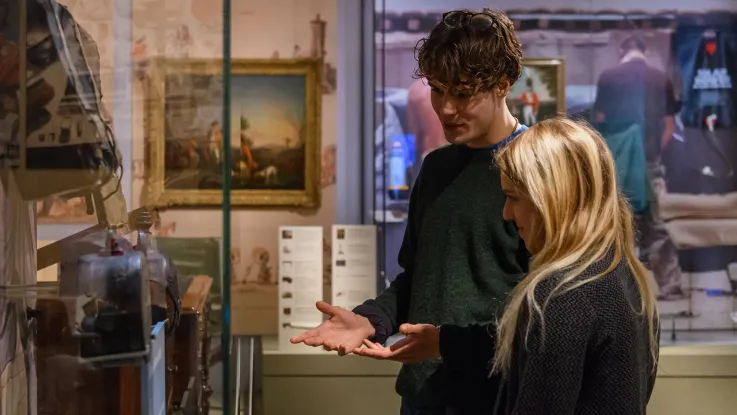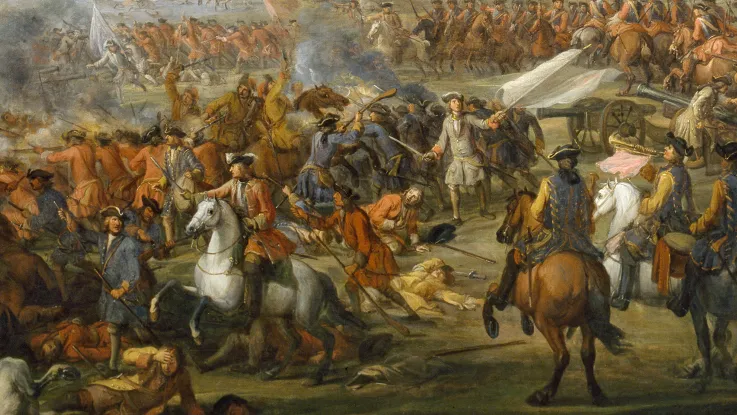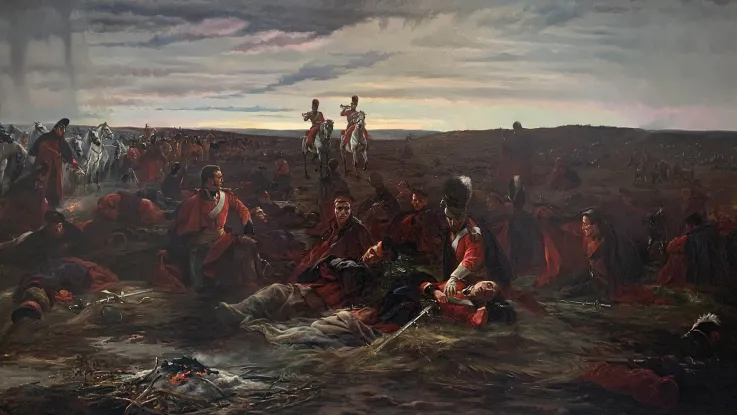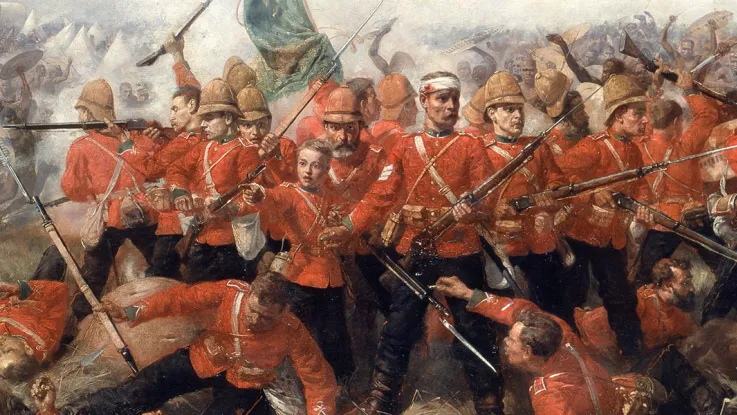Explore more from Army in Art
Destruction of the Floating Batteries, Gibraltar, 14 September 1782
2 minute read
The bigger picture
Gibraltar first became a British possession at the end of the War of the Spanish Succession (1702-13). But it remained hotly contested territory, with Europe's major powers keen to capitalise on its advantageous position at the gateway to the Mediterranean Sea.
This painting captures a crisis point during one of the most famous of these contests for control. Three years into the Great Siege of Gibraltar (1779-83), with the weakened British garrison facing bombardment from both land and sea, the Spanish fleet unleashed a new method of mass destruction, the floating gun battery. This prompted the British defenders to resort to a novel, albeit high-risk, approach of their own.
Morale
In the wake of Britain's defeat in the American War of Independence (1775-83), the successful defence of Gibraltar stood out as a rare success story. It soon became the focus of efforts to boost British morale.
When the City of London decided to commission a large painting to commemorate the victory, the artist George Carter offered his services. He was determined to recreate the scene as realistically as possible, travelling to Gibraltar himself and taking advice from those involved.
Despite this diligence, the commission went to Carter's rival, John Singleton Copley, whose painting of the very same scene now hangs in the Guildhall Art Gallery. Completed in 1791, Copley's work owes much to Carter's earlier composition.
See it on display
Come and see George Carter's painting on display in our Soldier gallery, alongside other items that offer insights into soldiers' experiences of war throughout the Army's history.


